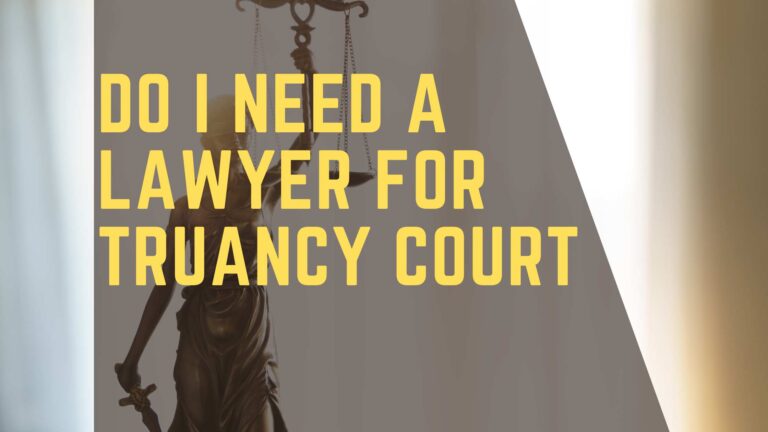Do You Need a Lawyer to Set Up a Trust?

You don’t legally need a lawyer to set up a trust, though it can be beneficial. Expert legal guidance ensures the trust complies with state law and meets your specific needs.
Table of Contents
Setting up a trust is a strategic step many take to manage and protect their assets, both during their lifetime and after. Trusts can help bypass the long process of probate, provide for loved ones, and even reduce estate taxes.
Do You Need a Lawyer to Set Up a Trust? While it’s possible to create a trust without a lawyer, the complexity of state laws and the variety of trusts available make navigating the process alone challenging. Legal advice tailors the trust to your unique circumstances, minimizing risks of errors that could undermine your intentions. Regardless of the route you choose, understanding your state’s legal requirements and the objectives of your trust is essential. Seeking the help of a professional can streamline this process and offer peace of mind that your trust is set up correctly.
Essentials Of Setting Up A Trust
Setting up a trust is a valuable step in managing your assets. Trusts can help secure your estate and ensure your wishes are honored. Understanding trust essentials is crucial for a smooth process.
Types Of Trusts And Their Purposes
Trusts come in various forms, each serving different needs. Below are common types:
- Revocable Trusts: Changeable at any time during the grantor’s life.
- Irrevocable Trusts: Not easily modified; strong in asset protection.
- Charitable Trusts: Tailored to benefit a charitable organization.
- Special Needs Trusts: Designed to support those with disabilities.
- Testamentary Trusts: Established through a will after death.
Key Components Of A Trust Document
A trust document should include several vital elements:
| Component | Description |
|---|---|
| Grantor | Person creating the trust |
| Trustee | Individual or institution managing the trust |
| Beneficiary | Receiver of the trust’s benefits |
| Assets | Property and funds held in the trust |
| Terms | Rules for how the trust operates |
| Successor Trustee | Backup to take over if the original trustee can’t serve |
An experienced lawyer can help you navigate these elements. They ensure that the trust aligns with your goals and complies with legal requirements. Setting up a trust can secure your future and safeguard your interests.

Credit: www.protectyourassetsga.com
Legal Requirements For Trust Formation
Understanding the legal requirements for trust formation is a crucial step in protecting your assets for the future. A trust can offer numerous benefits, including estate tax reduction, asset protection, and avoiding probate. But setting up a trust correctly is vital to ensuring it serves its intended purpose effectively. One key question many people have is whether they need a lawyer to establish a trust. To answer this, let’s explore the legal intricacies involved in creating a trust.
State-specific Laws And Regulations
Trust laws vary widely from state to state. Meeting your state’s regulations is vital for a trust to be valid.
- States may have different definitions of what constitutes a trust.
- Some states require a written document, while others allow oral trusts.
- Fiduciary duties, beneficiary rights, and revocability rules differ across states.
Using a local lawyer ensures compliance with these specific requirements.
Documentary Formalities For A Valid Trust
To create a trust, certain documentary formalities must be followed:
- A written document stating the trust’s terms is often required.
- This document should include the settlor’s intent, the trust’s purpose, beneficiaries, and the trustee’s duties.
- Most states demand that the trust document be signed and notarized.
Ensuring these formalities can prevent future disputes and legal challenges.
Pros And Cons Of Diy Trust Creation
Creating a trust is a big step in managing your assets. People often wonder if a lawyer is necessary for this process. The choice between a do-it-yourself (DIY) approach and hiring a professional has both benefits and drawbacks. Let’s explore the pros and cons of setting up a trust on your own.
Pros of DIY Trust Creation: Potential Cost Savings
Potential Cost Savings
DIY trust creation can mean significant savings. Lawyers can be expensive. Here are the key cost benefits:
- No lawyer fees: You avoid paying for professional services.
- Resourceful alternatives: Many online platforms offer affordable trust creation tools.
These choices keep money in your pocket while you secure your assets.
Cons of DIY Trust Creation: Risks of Errors and Omissions
Risks Of Errors And Omissions
A homemade trust might not be foolproof. Mistakes can be costly. Consider these risks:
| Risk | Consequence |
|---|---|
| Misunderstanding laws: | Your trust could be invalid or ineffective. |
| Missing details: | Key assets could be left out of your trust. |
Double-check your work to avoid these common pitfalls.

When To Consider Professional Legal Assistance
Setting up a trust can feel like navigating a labyrinth. It involves crafting a document that effectively manages assets, honors your wishes, and benefits beneficiaries. At times, this process demands professional legal aid.
Complex Financial Situations
Trusts come in various complexities. A straightforward trust may not need a lawyer’s touch. Yet, intricate financial portfolios call for expert guidance. Here are signs you might need legal aid:
- Multiple properties;
- Business ownership;
- Investments across different states or countries;
- Tax planning concerns;
- Providing for minors or dependents with detailed stipulations.
Lawyers can maneuver complex laws and regulations, ensuring your trust stands solid.
Special Needs Trusts And Estate Planning
For families with special needs members, standard trusts don’t suffice. A special needs trust requires precision to maintain eligibility for essential benefits. These factors necessitate a lawyer:
| Special Needs Trust Considerations |
|---|
| Government benefit preservation |
| Long-term care planning |
| Appropriate asset distribution |
| Trustee selection and responsibilities |
An attorney tailors the trust to your loved one’s unique needs.
Selecting The Right Lawyer For Your Trust
Setting up a trust is a strategic step in managing your assets. It safeguards your legacy and ensures financial support for your beneficiaries. Yet, creating a trust is intricate. The right lawyer can provide clarity and confidence. Let’s explore how to find a lawyer who fits your trust needs perfectly.
Qualifications And Experience To Look For
Legal expertise in trusts is a must. Trust laws vary by state. Your lawyer must know these well. Years of practice and a focus in estate planning also matter. They indicate a wealth of experience. Look for a lawyer who has set up many trusts.
Professional credentials also guide your selection. Many lawyers have special certifications in estate planning. These prove advanced knowledge and skills. Check the attorney’s track record. Success stories tell you much.
- Bar association membership
- Specialized estate planning certifications
- Positive client testimonials
Questions To Ask Potential Attorneys
Prepare questions in advance. This ensures you cover all bases. Experience with similar trusts, communication style, and fee structure are key queries.
| Question Category | Example Questions |
|---|---|
| Experience | How many trusts have you set up? |
| Process | What steps are involved in trust creation? |
| Communication | How will you keep me updated? |
| Fees | Can you detail your fees for setting up a trust? |
Remember, clear communication is crucial. Choose a lawyer who listens and explains things simply. Trusts can be complex. A good lawyer makes them easier to understand.
- Discuss your goals for the trust.
- Ensure the attorney explains complex terms.
- Assess their willingness to work with your financial advisors.
Cost Considerations And Lawyer Fees
Cost Considerations and Lawyer Fees are pivotal elements to ponder when setting up a trust. Whether to hire a lawyer or opt for a do-it-yourself approach depends on your budget and the complexity of your financial affairs. As you deliberate on the best course of action for establishing your trust, understanding the potential costs involved will guide you to a wise decision.
Comparing The Costs: Lawyer Vs. Diy
Setting up a trust can either be an investment in professional services or a personal challenge. Here’s a breakdown of what you might expect:
- Lawyer-Assisted Trust Creation: Expertise ensures all legal bases are covered. Costs can vary greatly based on the complexity of your trust.
- DIY Trust Setup: Many online platforms offer trust creation tools at a fraction of the cost. Be mindful of potential legal nuances or complex situations that may require professional advice.
| Service Type | Cost Range |
|---|---|
| Lawyer-Assisted | $1,500 – $5,000+ |
| Online DIY Solutions | $50 – $500 |
Understanding The Fee Structures
Lawyers may charge for trust setup in various ways:
- Flat Fees: A single rate for the entire process. Ideal for straightforward trusts.
- Hourly Rates: Payments based on time spent. This may escalate with complex situations.
- Percentage of Assets: Some attorneys might set fees based on the trust’s value, although this is less common.
DIY options typically provide upfront pricing, offering an accessible route for those confident in navigating the process self-sufficiently. Compare these to find the best fit for your needs and budget.
Conclusion
Establishing a trust can be complex, yet it’s a crucial step for asset management. Legal guidance ensures correctness and peace of mind. While not mandatory, a lawyer’s expertise could safeguard your interests. Remember, the right choice depends on your unique circumstances and the complexity of your estate planning needs.
Amelia Justiceberg, a distinguished legal luminary, thrives on the intersection of empathy and legal acumen. As a prominent family law attorney, she orchestrates compassionate resolutions amidst complex dynamics. Justiceberg's courtroom finesse and dedication to fairness define her practice. Beyond litigation, she ardently advocates for social justice, solidifying her reputation as an influential force in the legal landscape.






